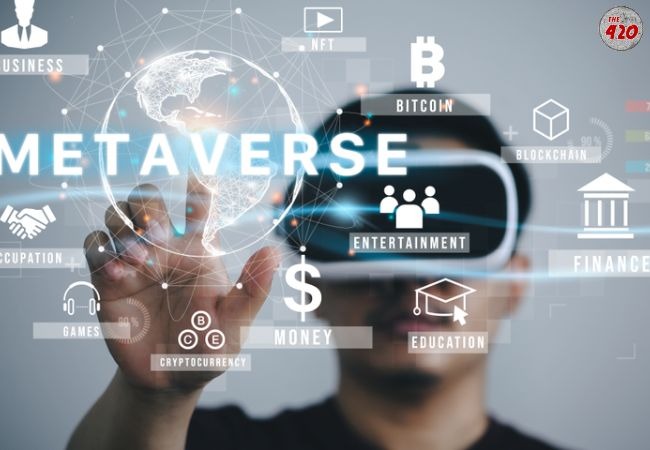The metaverse is the combined virtual shared space that emerges through the merging of virtually enhanced physical reality and physically persistent virtual reality promises unique possibilities for socializing, commercial interaction, and entertainment. An emerging digital universe comprising interconnected virtual spaces promises to revolutionize how we will socialize, work, and interact with technology, but, in parallel to the exciting promises it offers, it also conceals a darker side that raises cause for concern. Among emerging concerns are violations of data privacy, cyberbullying, and exploiting vulnerable users. The anonymity within virtual space will lead to behaviors that harm; the more concerning aspect, though, is how addiction and the psychological effects grow. As the metaverse grows, its unregulated expansion may expose consumers to new ways of being harmed, and thus it should be considered proactively. However, within these expanded digital environments, users have significant security and privacy challenges to consider.
Data collection and privacy issues
Given the fact that metaverse platforms are created to collect extensive data from users, which may contain both traditional personal information and detailed behavioral patterns, biometric data, and location tracking in real-time, it makes the system even more vulnerable to privacy breaches and unauthorized profiling. An article by Forbes writes that metaverse platforms collect so much data for users to enjoy a customized experience. This makes one ask if it is something that ensures safety for users.
Lack of Standardized Security Protocols
The lack of uniform security controls across the multiverse is contributing to vulnerability amplification. Where there is a lack of harmonized protocols, inconsistencies exist. This will affect the uniform security strategy and thereby create an exploit gap that puts the system open to cyberattack. CSO Online cites in an article one of the big vulnerabilities that involve the lack of standardized security controls across the various platforms as giving significant challenges on how to handle security within the metaverse.
Identity Theft and Authentication Issues
The virtual environment poses challenges in the establishment and verification of user identities. That is, the potential for identity theft, impersonation, and unauthorized access is higher since avatars can be manipulated or duplicated. Thus, strong authentication mechanisms need to be in place to foster trust and security within the metaverse. One of the comprehensive studies on security and privacy in the metaverse comes up with the challenges and the need to have proper identity management systems.
User Concerns and Perceptions
User concerns related to the metaverse concerning security and privacy are significant. In a survey by S&P Global Market Intelligence, more than 70% of respondents felt anxious about data collection and anonymity in virtual spaces and standards of conduct and safety regarding payments in virtual environments.
Experts suggest that these problems are best solved by an integrated approach. Standardized security protocols, improving data encryption, and establishing clear user consent mechanisms are very important steps. Educating the users about risks and best practices can empower people to safely operate in the metaverse. The article by TechTarget lists out the major concerns of privacy issues and advises business and users how to mitigate it, and points out the necessity of proactive approach.
Conclusion
As the metaverse continues to grow, issues related to security and privacy will need to be addressed for it to establish a safe and trustworthy virtual environment. Hence, collaboration is needed between platform developers, policymakers, and users themselves to design proper security frameworks ensuring confidentiality of private information and transaction security within these newly formed virtual territories. There is, of course, the dark side of the metaverse that brings ample risks with its rapid growth. These risks are that of privacy, with large amounts of personal data open to attacks, and the possibility of higher surveillance. The anonymity it provides can also encourage cyberbullying, harassment, and other illegal activities in virtual spaces. There is also the issue of addiction, where users become too engrossed in virtual realities and forget their real-world responsibilities. The economic impact, such as job displacement and the commercialization of virtual spaces, also raises ethical issues. As the metaverse develops, these challenges will be key to ensuring that it is developed responsibly.
Author: Ms. Anadhi Sharma, Bachelor in Political Science, Hindu College, University of Delhi
Disclaimer – The views and opinions expressed in the commentaries/blogs/articles are those of the authors and do not necessarily reflect the official policy or position of the Forum for Global Studies.

